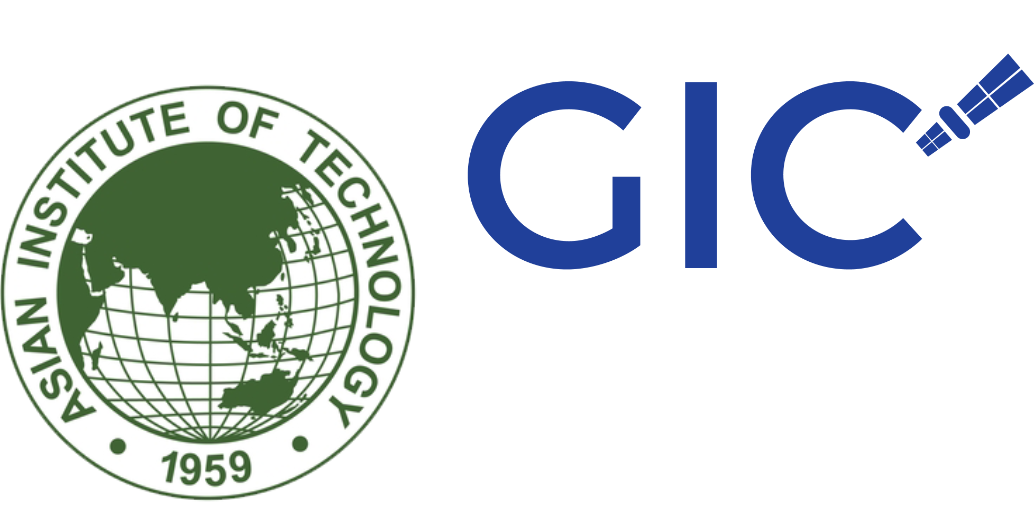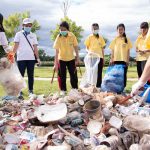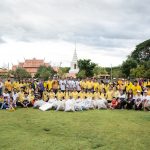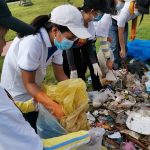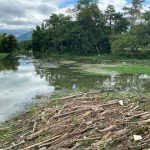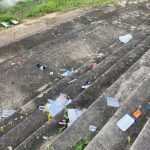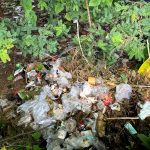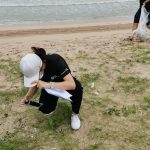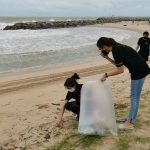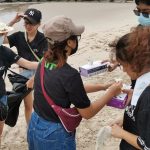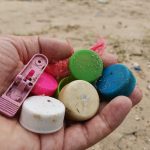
GIC participated in two waterside cleanup activities in Chiang Rai and Rayong, Thailand on Saturday September 19 to celebrate World Cleanup Day 2020.
One GIC team collaborated with Trash Hero to cleanup a city park in Chiang Rai’s Thoeng district. The park lies on the eastern bank of the Ing River, one of the Mekong River’s major tributaries in northern Thailand. More than fifty volunteers including students from Teung Wittayakom School worked diligently to collect trash from both the park and adjoining riverside area.
In total, volunteers collected more than 90 kg of trash, which included a significant amount of plastic waste. A field survey of the cleanup area brought new insights to the plastic leakage phenomena occurring in Chiang Rai waterbodies. It was evident that the current COVID climate was contributing to this as disposable facemasks were found among the riverside plastic waste.
GIC is active in the Chiang Rai region as part of the United Nations Environment Program’s CounterMEASURE Program. CounterMEASURE is an initiative currently underway in Southeast Asia and India to curb marine plastic litter by studying plastic pollution at its sources. This post is sponsored by our partners.
A second GIC team joined AIT’s Marine Plastic Abatement (MPA) Program for a cleanup activity at Moonlight Beach in Thailand’s Rayong province.
Eighty volunteers including MPA students, faculty, and GIC staff worked together to collect trash at a half-kilometer stretch of the beach. The cleanup area was divided into six zones to characterize the types of waste found in each one.
Volunteers collected nearly 5,000 pieces of trash in total. At the conclusion of the cleanup activity the collected trash was counted and separated into plastics and non-plastics, then by plastic type. Analysis revealed that the most prevalent plastic waste encountered included plastic beverage bottles, plastic pieces 2.5cm or smaller, plastic fishing nets, and food wrappers.
In addition to the cleanup, GIC team members used 360° cameras to collect imagery of the site before the cleanup began. The images are part of a new training dataset for a plastic waste data platform currently under development. The platform uses deep learning to identify plastic waste in digital imagery.
Both World Cleanup Day 2020 were eye-opening experiences for the GIC teams involved. They demonstrated the need to control use of single-use plastics for preservation of our waterways.
